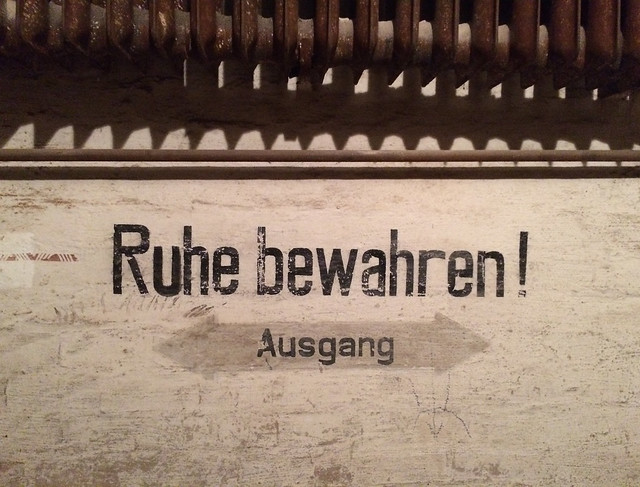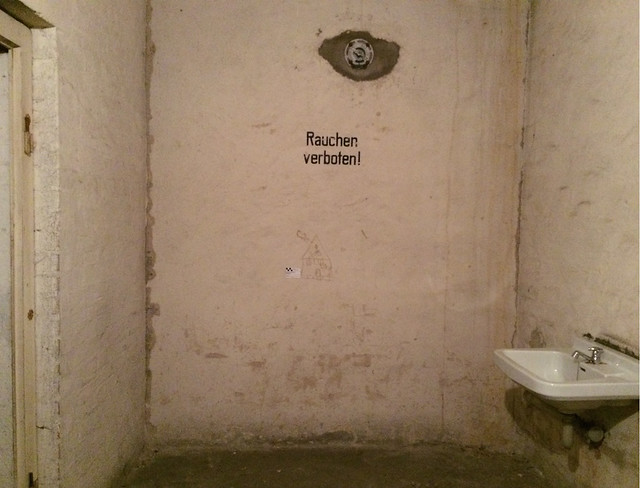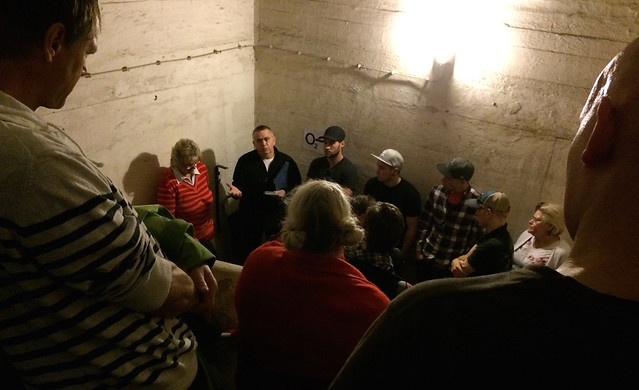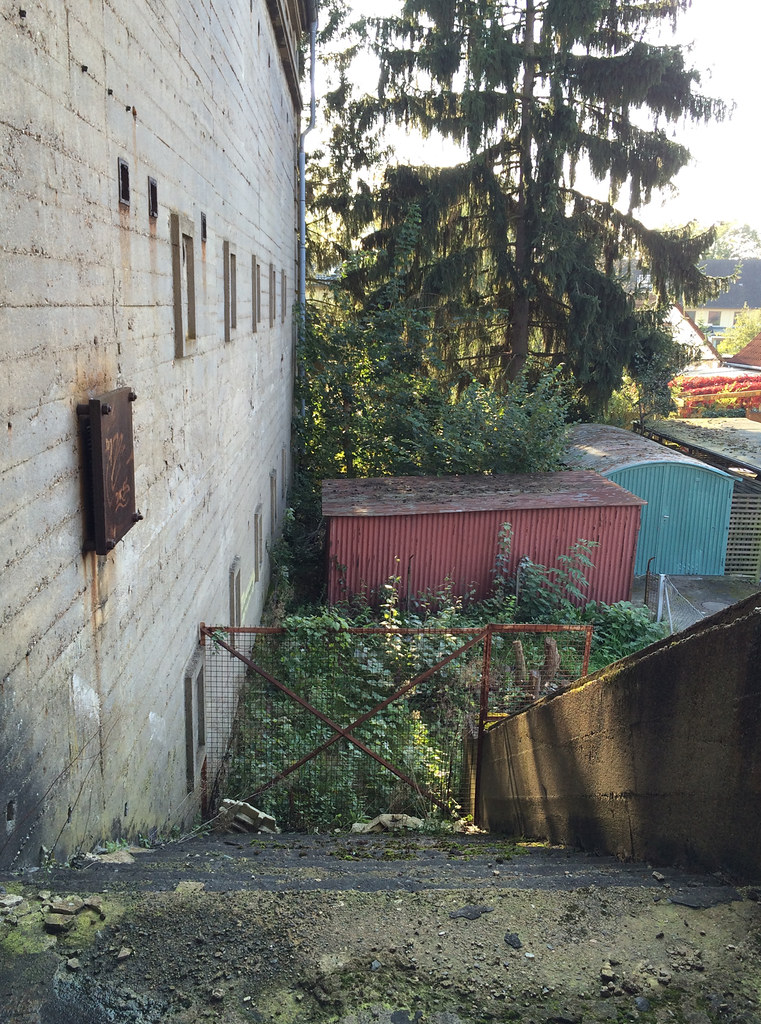Mar 7, 2015
New website
It's been fun, but from now on, I will no longer be blogging on this website. Please redirect to www.shelleypascual.wordpress.com. Looking forward to seeing you there!

Feb 28, 2015
Bye Bye Blogspot
This blog was born five years ago. Now, it's time for a change. Check back soon for more updates; a new website is currently in the works!

Dec 15, 2014
Celebrating Christmas Abroad
Most people associate the holidays with visiting family and/or going "home." When you live abroad and this isn't always possible, however, you learn to appreciate different Christmas traditions. Most of my students cringed when I told them how I celebrated 25th December in Oz a few years ago. Christmas in the summertime? How outlandish! Looking back, I have nothing but fond memories of how I've spent Christmas over the years.

Christmas in Canada
There's this stereotype that us North Americans all celebrate Christmas on 25th December, and I can't speak on behalf of the Canadians that do, because I grew up having a feast in the evening of the 24th with my big fat Filipino family. Uncle Rod had the honours of handing out all the gifts at midnight, and when my cousins and I were kids he even dressed up as Santa Claus!
For my sister and I, Christmas Day wasn't as big a deal as Christmas Eve. Nevertheless, we loved waking up and running down the stairs to find presents from Santa (aka our parents) under the tree. They also put wee presents in our stockings hanging by the fireplace. When I was much younger I left out cookies and milk for Santa, which he obediently ate haha.
It almost always snowed at Christmastime in my childhood, though nowadays white Christmases in Toronto are hit or miss. The strongest memory I have of Christmas actually doesn't involve presents, but instead, music. My dad used to blast the Jackson 5 Christmas album as early as November, much to my dismay. The only other album I know all the lyrics to is Mariah Carey's 1994 Merry Christmas album.

Christmas in Australia
Truth be told, the main difference between Christmas in Canada and Christmas in Australia is the climate. I was living in Melbourne at the time, and all the shops in the city were decorated with festive lights, adorned in wintery motifs. The city was dotted with artificial Christmas trees, which was appalling because it was 25-30°C at the time! Link to my old blog post [2010] Christmas in Melbourne here.
Sure, Christmas in Oz is a bit tacky, but trust me, everyone back home freezing in -10°C weather is secretly jealous that you get to bbq on the beach in shorts and a t-shirt (a typical Christmas tradition). Surrounded by fellow backpackers, I, too, had a bbq not far from the beach (St. Kilda Beach) back in Christmas 2010. It remains one of the most memorable Christmases I've ever had, not just because it was summertime, but because although it was my first Christmas away from home, I still felt "at home."

Christmas in Germany
Everybody knows that the best thing about Christmas in Germany are the Christmas Markets. Steeped in tradition that goes back hundreds of years, you couldn't even begin to compare these markets with the ones that have been popping up in North America over the past few years. The Toronto Christmas Market, for example, lacks a certain charm, I find. Not hating, just saying.
The tradition of Nikolaus is another thing I love about Christmas in Germany. You're supposed to clean your boot the evening before he comes and leave it just outside your front door. On 6th December, Nikolaus fills your boot with treats such as chocolates, mandarin oranges and walnuts - but only if you've been a good girl or boy. I know this because Nikolaus visited me for the first time back in 2012!
Yet another tradition I've only seen at Christmastime in Germany is this Weihnachtsplätzchen baking bonanza. Many people dedicate an entire weekend to making Christmas cookies that are meant to last their family and friends at least a few months. Sadly, Germans don't make or eat cookies any other time of year really. I guess after stuffing your face silly with these buttery treats all throughout December, you'd definitely be sick of 'em.
NB: In Germany, Christmas Eve is referred to as the "Holy Night," Christmas Day is called the "1st Christmas Day," and Boxing Day is called the "2nd Christmas Day." Also, from 27th December up until New Year's Eve, the malls are packed with shoppers returning gifts, only it isn't called Boxing Week.

Christmas in __________
The idea for this blog post arose from the current dilemma we have of not knowing what to do this Christmas. The bf's parents are currently in Florida and plan to spend Christmas there, my family's in Canada, and without anyone to celebrate the holidays with here in Germany, I think it only makes sense to celebrate it abroad.
Admittedly, I'm excited beyond words! I love the thought of seeing something new and celebrating Christmas in a completely different country! What I've learned is that you truly can feel "at home" wherever you are for Christmas, you just gotta have an open mind. It may take me a lifetime but I hope to add more and more countries to this list and experience what Christmas is like all around the world.


Christmas in Canada
There's this stereotype that us North Americans all celebrate Christmas on 25th December, and I can't speak on behalf of the Canadians that do, because I grew up having a feast in the evening of the 24th with my big fat Filipino family. Uncle Rod had the honours of handing out all the gifts at midnight, and when my cousins and I were kids he even dressed up as Santa Claus!
For my sister and I, Christmas Day wasn't as big a deal as Christmas Eve. Nevertheless, we loved waking up and running down the stairs to find presents from Santa (aka our parents) under the tree. They also put wee presents in our stockings hanging by the fireplace. When I was much younger I left out cookies and milk for Santa, which he obediently ate haha.
It almost always snowed at Christmastime in my childhood, though nowadays white Christmases in Toronto are hit or miss. The strongest memory I have of Christmas actually doesn't involve presents, but instead, music. My dad used to blast the Jackson 5 Christmas album as early as November, much to my dismay. The only other album I know all the lyrics to is Mariah Carey's 1994 Merry Christmas album.

Christmas in Australia
Truth be told, the main difference between Christmas in Canada and Christmas in Australia is the climate. I was living in Melbourne at the time, and all the shops in the city were decorated with festive lights, adorned in wintery motifs. The city was dotted with artificial Christmas trees, which was appalling because it was 25-30°C at the time! Link to my old blog post [2010] Christmas in Melbourne here.
Sure, Christmas in Oz is a bit tacky, but trust me, everyone back home freezing in -10°C weather is secretly jealous that you get to bbq on the beach in shorts and a t-shirt (a typical Christmas tradition). Surrounded by fellow backpackers, I, too, had a bbq not far from the beach (St. Kilda Beach) back in Christmas 2010. It remains one of the most memorable Christmases I've ever had, not just because it was summertime, but because although it was my first Christmas away from home, I still felt "at home."

Christmas in Germany
Everybody knows that the best thing about Christmas in Germany are the Christmas Markets. Steeped in tradition that goes back hundreds of years, you couldn't even begin to compare these markets with the ones that have been popping up in North America over the past few years. The Toronto Christmas Market, for example, lacks a certain charm, I find. Not hating, just saying.
The tradition of Nikolaus is another thing I love about Christmas in Germany. You're supposed to clean your boot the evening before he comes and leave it just outside your front door. On 6th December, Nikolaus fills your boot with treats such as chocolates, mandarin oranges and walnuts - but only if you've been a good girl or boy. I know this because Nikolaus visited me for the first time back in 2012!
Yet another tradition I've only seen at Christmastime in Germany is this Weihnachtsplätzchen baking bonanza. Many people dedicate an entire weekend to making Christmas cookies that are meant to last their family and friends at least a few months. Sadly, Germans don't make or eat cookies any other time of year really. I guess after stuffing your face silly with these buttery treats all throughout December, you'd definitely be sick of 'em.
NB: In Germany, Christmas Eve is referred to as the "Holy Night," Christmas Day is called the "1st Christmas Day," and Boxing Day is called the "2nd Christmas Day." Also, from 27th December up until New Year's Eve, the malls are packed with shoppers returning gifts, only it isn't called Boxing Week.

Christmas in __________
The idea for this blog post arose from the current dilemma we have of not knowing what to do this Christmas. The bf's parents are currently in Florida and plan to spend Christmas there, my family's in Canada, and without anyone to celebrate the holidays with here in Germany, I think it only makes sense to celebrate it abroad.
Admittedly, I'm excited beyond words! I love the thought of seeing something new and celebrating Christmas in a completely different country! What I've learned is that you truly can feel "at home" wherever you are for Christmas, you just gotta have an open mind. It may take me a lifetime but I hope to add more and more countries to this list and experience what Christmas is like all around the world.
Oct 19, 2014
Bunker Kralenriede – Führung 3. Oktober 2014
 |
| Keep calm!
← Exit →
|
The tour lasts about 1 1/2 hours, costs 7€, and is led by a well-informed local (i.e. a Braunschweiger). Though the bunker was not built below ground, it felt about 10 Degrees chillier inside. That's the first thing I noticed upon entering, in addition to feeling a tad spooked out. The second thing I noticed was Rauchen verboten! (Smoking not permitted!) written on almost every wall in an unfamiliar typeface.
The bunker has a simple layout: ground floor, 1st floor and 2nd floor. Each floor looks identical to the next and consists of long hallways lined with 6 sq. metre rooms. Unbelievably, 20 people fit in each of these rooms, sometimes for days at a time. Despite having vents that allowed fresh air to enter the bunker, ventilation was horrible and made worse by the perpetually foul state of the washrooms.
Only German women and children were allowed in the bunker. Foreigners and Jews were not permitted to enter. Bunker Kralenriede was mainly for residents in the local area, and most people kept a few of their belongings inside the bunker as there were periods of time when the alarms went off frequently.




The photos below show stairs leading to one of the bunker's main entrances, as well as the actual door at that entrance. Our tour guide explained that once the door was closed, it remained closed until it was safe to open again. Oftentimes, people who hadn't entered the bunker in time desperately waited at this door in hopes of being let in. The sheer thought of this makes my heart sink.
Nowadays, musicians make use of Bunker Kralenriede by renting out the space for practice sessions. I've shared this with a few people I know and I've either gotten a raised eyebrow or a shrug of the shoulders. So long as the musicians are comfortable with it, why shouldn't it be tolerated?


Situated in the neighbourhood of Kralenriede, it's hard to notice the unassuming bunker at first since it's surrounded by normal houses on a residential street. Here's a photo of the bunker taken from outside.
While it isn't the most positive time in history to reflect on, my visit to Bunker Kralenriede was admittedly fascinating. The past cannot be changed. As such, I think it's necessary for one to know a thing or two about the place where one lives or the place one calls home, even if this place is temporary. I can't think of a more worthwhile activity to have done on the Tag der Deutschen Einheit (Day of German Unity) earlier this month. *proudly waves German flag in the air*
Sep 19, 2014
Do we still judge childless women?
The level of childlessness in England and Wales is increasing. According to the Office of National Statistics, one in nine women born in 1940 were childless. It is predicted that now, close to one in four women at the end of the childbearing years (age 45) don't have children. Childless women today are often judged for not having any children, however childfree lifestyles are also widely accepted.
Labelled “child haters” or criticized for not wanting children, many women remain childless due to infertility, which is a problem not exclusive to females. One in six British couples have difficulty conceiving and the rate is on the increase. British Employment Minister Esther McVey recently admitted that while she loves children, similar to other childless women, she hasn't found the right person to have children with.
Infertile or single women are furthermore expected to either opt for adoption or donor offspring. Jody Day, founder of Gateway Women, a support network for childless women above 35, recalls being berated from a stranger for dismissing the idea of adoption and therefore not desiring children enough. Moreover, plenty of childless women have “mother potential” but simply want to have a baby with a man (or woman) that they love.
Whilst childless women are largely judged, they are still accepted and defended. It's untrue that the only job a woman can do is raise children. Almost 35% of UK managers are women, some of whom focused on establishing a career prior to even thinking of motherhood. Former Australian Prime Minister Julia Gillard is a prime example. Women are content with delaying childbearing to older ages, at which point it is sometimes too late.
In terms of costs, raising a child has become nearly unaffordable. A couple spends on average £340/week whereas a couple with a baby spends on average a whopping £578/week. Not surprisingly, mums feel that they now must earn more than £26,000/year to make it worth returning to work after maternity leave.
Proven by the UK's plummeting birthrate, indeed, fewer women are having children nowadays, causing one to question whether childfree lifestyles and unconventional family set-ups should be more embraced. After all, regardless of childlessness by circumstance or by choice, a woman is not less of a woman without child.
Subscribe to:
Posts (Atom)

